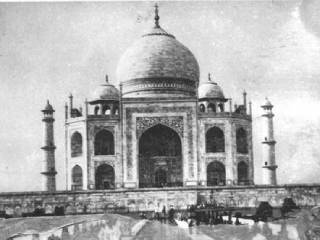New Delhi: India will lose billions of dollars but the United States, through the civilian nuclear energy agreement, stands to gain over $35 billion in hard cash, and this is a conservative estimate, without spending a penny if and when the deal comes into force. Washington will also have the satisfaction of gaining, for the first time, a transparent insight into India’s nuclear programme and of placing ceilings on its nuclear capability.
Experts argue that the "non-quantifiable" gains will be far more substantive for the United States than the monetary gains but admit that the dollars and cents argument being used by the US state department are an indication that Washington expects major financial benefits from the nuclear deal. US secretary of state Condoleezza Rice was the first to point out that India was going to send $20 billion for eight nuclear power reactors over the next six years.
The US clearly hopes to get a sizeable share of this amount that incidentally is far more than what India has invested in building nuclear weaponry and missiles since the 1998 Pokhran tests.
The US has assured India that it will be in a position to provide the fuel for the nuclear plants, of course subject to the many conditions that will be included in the various agreements currently being negotiated with the US and IAEA. This in itself will earn vast sums of money for the Americans, considering the fact that uranium prices are soaring, with sugar being the only commodity to register a higher percentage of increase in the last year. Uranium prices jumped 76 per cent in 2005 and again in 2006, rising 57 per cent between January and May. The non-quantifiable cost will, of course, lie in the fact that the nuclear deal will make India dependent on the US for the supply of uranium that can be switched off, as was done in the case of Tarapur, if New Delhi is perceived to have failed in meeting any one of the many obligations under the nuclear agreement. India will lose further by discarding what even President A.P.J. Abdul Kalam advocated, self sufficiency in thorium, for this dependency.
The US will also be using the nuclear deal to revive its nuclear power industry that has been lying dormant for decades. Ms Rice herself admitted this when she said, "This initiative will create opportunities for American jobs. Nuclear cooperation will provide a new market for American nuclear firms as well as assist India’s economic development. The initiative may add as many as 3,000 to 5,000 new direct jobs in the US and about 10,000 to 15,000 indirect jobs in the US, as the US is able to engage in nuclear commerce and trade with India. By helping India’s economy to grow, we would thus be helping our own…" The United States has not developed a single new nuclear reactor for the past 30 years, and experts have pointed out that its technology in this area is obsolete.
The nuclear agreement has been linked by the Pentagon to more arms sales. After India announced its ambitious separation plans on March 2, the Pentagon welcomed the nuclear deal for opening "promising prospects" for big weapon sales "whether in the realm of combat aircraft, helicopters, maritime patrol aircraft or naval vessels".
Lockheed Martin and Boeing have expanded offices and staff here to be in a position to bid "with certainty" for the big defence tenders.
Apart from the 50 Boeing aircraft already purchased for Air India, the US multinationals are seeking to monopolise the 126 fighter aircraft that India is currently shopping for with $9 billion.
The US is currently a frontrunner for the multi-role combat aircraft, the maritime reconnaissance aircraft for both the Indian Air Force and Navy, 197 helicopters for the Army and at least 20 items of equipment for the special services. As a defence analyst said, the US companies are "carpet bombing us" and he for one was doubtful whether the government would be able to resist the growing pressure with the US now working to bring India into the Proliferation Security Initiative. A nuclear expert pointed out, "What happened on July 18, 2005, thus, was a nuclear coup against India staged in Washington."
http://www.asianage.com/?sam=2:1:235:230723&headline=US~can~gain~$35bn~with~nuke~deal

 Mizoram: EC accepts Christians’ demand to defer counting on Sunday, but what if Hindus had made a similar demand?
Mizoram: EC accepts Christians’ demand to defer counting on Sunday, but what if Hindus had made a similar demand? Sign Petition : Immediately repeal the draconian and unconstitutional ‘The Waqf Act, 1995’
Sign Petition : Immediately repeal the draconian and unconstitutional ‘The Waqf Act, 1995’ Shriram : Sri Lanka’s saviour
Shriram : Sri Lanka’s saviour Why it is so cool to malign Hindu gods and goddesses, but it may not be that easy now
Why it is so cool to malign Hindu gods and goddesses, but it may not be that easy now Shocking Truth of Taj Mahal exposed by Late Pujya P. N. Oak
Shocking Truth of Taj Mahal exposed by Late Pujya P. N. Oak How are Hindus treated in states where they are in a minority?
How are Hindus treated in states where they are in a minority?